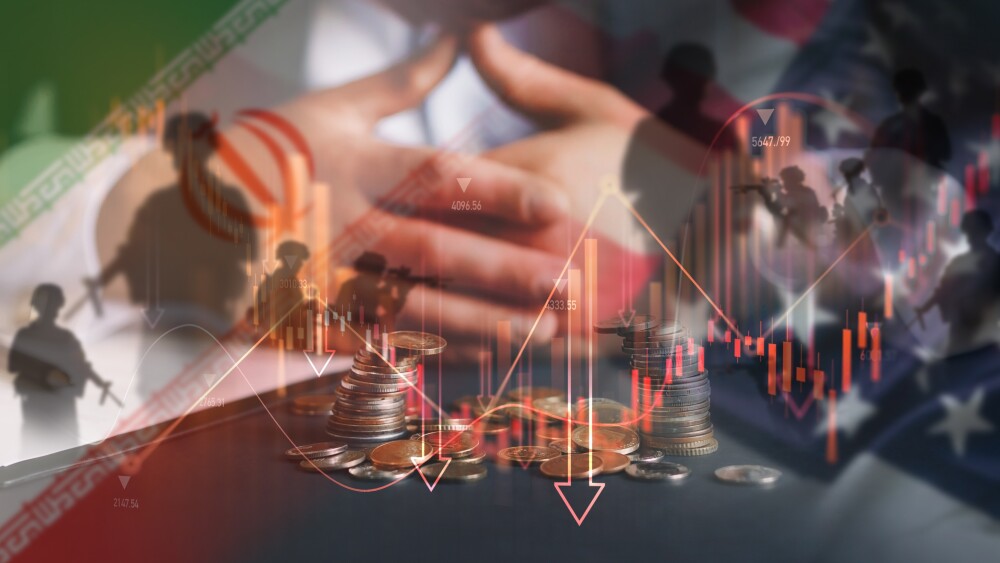For years, the Islamic Republic of Iran has struggled with mounting crises—from economic decline and energy shortages to severe air pollution, corruption, eroding public legitimacy, and repression of the media and political dissent. Yet the situation has deteriorated dramatically in the weeks following its brief war with Israel.
Ironically, Israel’s 12-day campaign did not target Iran’s economic, commercial, or energy infrastructure. But the psychological and political shock of the strikes has shaken public confidence in the government’s ability to manage the country, accelerating existing structural problems. Moreover, Iran faces the restoration of United Nations sanctions if there is no nuclear agreement soon.
Iran faces the restoration of United Nations sanctions if there is no nuclear agreement soon.
The Tehran Stock Exchange has been one of the first visible casualties. Since the start of the war, it has lost nearly a fifth of its overall value, with the main index dropping 12 percent. Individual investors have withdrawn an estimated $300 million over the past two weeks, and the market’s total capitalization has fallen from around $140 billion to roughly $110 billion. The government injected about $700 million into the stock market in an attempt to stabilize prices and slow the sell-off, but the exodus of retail investors has continued. Despite strict security measures, angry shareholders and those who lost their savings staged protests outside the Tehran Stock Exchange in recent days leading to clashes with security forces.
For an economy valued at around $340 billion, such financial volatility is troubling. More alarming is that the withdrawn capital has not flowed into other domestic markets such as housing or gold, both of which remain stagnant. This suggests that much of the money is leaving the country. Iran already has grappled with massive capital flight; over the past two years, an estimated $20 billion has left the country annually—six times the level recorded in 2018, when U.S. sanctions were reimposed.
Trade figures point to further economic distress. Customs data show that last month non-oil exports fell by 12 percent and imports plunged by 34 percent compared to June last year. Oil exports have dropped 16 percent, to 1.36 million barrels per day. Coupled with a 14 percent decline in global oil prices, Iran’s oil revenues effectively have fallen by about 30 percent.
Because three-quarters of Iran’s imports consist of essential household goods, the drop in imports has triggered a surge in food prices. Domestic media report that prices for staple food items have risen by 25 to 30 percent since the war began. In a country where more than half of the population already lives below the poverty line, such a monthly spike is catastrophic.
Domestic media report that prices for staple food items have risen by 25 to 30 percent since the war began.
The United States, Britain, France, and Germany reportedly have agreed to restore United Nations sanctions on Iran under the “snapback mechanism” if no nuclear deal is reached by the end of August. European diplomats will press Tehran in the coming days, saying Iran can avoid sanctions if it takes credible steps to ease concerns over its nuclear program. The mechanism, part of U.N. Security Council Resolution 2231 that endorsed the 2015 Joint Comprehensive Plan of Action, automatically reimposes sanctions within 30 days if Iran is deemed non-compliant. An American official told Axios that President Donald Trump, frustrated by Iran’s refusal to return to talks, sees the snapback as leverage and insists future negotiations must be direct. French Foreign Minister Jean-Noel Barrot confirmed the European negotiators will activate the mechanism if negotiators make no tangible progress.
At the same time, Iranian cities are battling unusual levels of air pollution. On June 10, while most neighboring countries recorded generally clean air, only three cities in northern and northwestern Iran had clear skies. The rest of the country faced yellow, red, or even purple alerts.
In recent days, Tehran and Alborz provinces have seen air quality indices exceed 400 at times and remain above 200 as of this writing. By comparison, air quality levels are 19 in Baku, 30 in Ankara, 76 in Doha, 87 in Dubai, 70 in Baghdad, and about 100 in Islamabad—a city notorious for pollution. Industrial Isfahan and the oil-rich province of Khuzestan also have experienced dangerously high levels of air contamination.
Beyond the numbers, a sense of political humiliation permeates Iranian society. Israel’s airstrikes exposed the Islamic Republic’s inability to foresee or counter a major attack. This failure, many Iranians argue, has stripped away any remaining image of the regime as a strong or competent state. The shock has only reinforced the perception of a government in terminal decline—a government whose structural weaknesses already had devastated its economy, environment, and social cohesion. As one Iranian analyst observed, “Humiliation is a form of symbolic death that not only ends a government’s legitimacy but also erases the possibility of reclaiming its story.”






